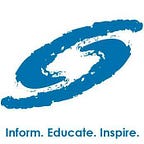How being an “everything nerd” helps me be a better scientist
By Natalia Orlovsky, senior at Garnet Valley High School and Regeneron Science Talent Search 2018 finalist
I spent the summer before my junior year of high school shuttling between a toxicology lab and the Penn Museum’s Mesoamerica gallery, flitting between two very different worlds.
On weekdays, as a student in the University of Pennsylvania’s Teen Research and Education in Environmental Science (TREES) program, I attended lectures, visited sites of environmental interest, and designed and conducted a molecular toxicology research project examining the effects of e-cigarette vapor on cell stress pathways. I hummed show tunes while plating cells and cracked nerdy jokes with my fellow TREES students about how ex-cell-ently our days had gone.
On weekends, however, I donned my yellow volunteer I.D. and at the train station exit, I took a right instead of my usual weekday left toward the lab. I spent my shifts at the museum giving interactive presentations on a set of replica artifacts and engaging in conversations about ancient civilizations with museum visitors.
When I tell people about the delightfully nerdy summer I spent oscillating between STEM and the humanities — or, for that matter, about my science-themed creative writing portfolio, or about my interest in interdisciplinary applications of mathematics — I’m met with some surprise. “But you’re a bio nerd!” It’s true — I am — but I’m also a history nerd, a poetry nerd, and a math nerd. I’m a bit of an “everything nerd,” so to speak.
That summer, I fell in love with molecular toxicology and its significance to human health. I felt drawn to its elegant use of microscopic models to investigate the macroscopic world and came to love the dynamic nature of the research process. I loved the work that I was doing, from the ways in which it challenged me to the joyful moments of revelation that it brought.
Meanwhile, my time at the Penn Museum left me fascinated with the fluid nature of historical narratives. Each visitor I spoke with offered their own interpretation of the artifacts they saw, shaped by their personal perspectives and experiences. I began to see history as both the story of the past and of the people who constructed it, of their individual biases and ideologies, and of the political circumstances in which they lived. I became fascinated with historiographic questions: Which stories get told, and why? What can they tell us about the events they discuss, the eras in which they were written, and the ways in which people and societies continue to approach, communicate, and shape information?
My cross-curricular adventures have offered me fond memories, lasting social connections, and a range of transferrable skills, from an ability to communicate my ideas in writing to a belief in the power of critical reasoning. Perhaps most acutely, they’ve offered me the understanding that no discipline can exist in a vacuum.
My scientific research for my Regeneron Science Talent Search project belongs to a new generation of e-cigarette toxicology studies that become even more interesting when viewed in the context of the history of the tobacco industry and its role in shaping American legislation. My historical research is informed by the critical reasoning skills I acquired in the lab, as well as by my interests in literature and behavioral science.
Art draws from classics and the natural sciences. Mathematics and computer science intersect with philosophy. Some of the most exciting work currently underway exists in the grey spaces between subject areas, and even research that falls cleanly within the boundaries of a discipline relies on skills best learned in other fields of study.
If there’s one thing I’ve come to see in my time as an “everything nerd”, it’s that there are many ways to look at big questions.
Some answers are best seen through the lens of a microscope, but others appear between the lines of a historical document or in the depths of a mathematical proof. In isolating these lines of inquiry, as our education system so routinely does, we do both ourselves and our work a disservice. I don’t think that everyone has to be an “everything nerd” — developing expertise requires specialization — but I do think that we need to teach kids to see the merit in multiple ways of tackling problems.
We need to let kids explore all areas of study, without asking them to pick a side of the so-called STEM/non-STEM dichotomy. We need to recognize that interdisciplinary facilitates the development of critical reasoning skills, and that these ways of thinking are crucial to both academic work and social progress — and, ultimately, to a brighter future for all of us.
